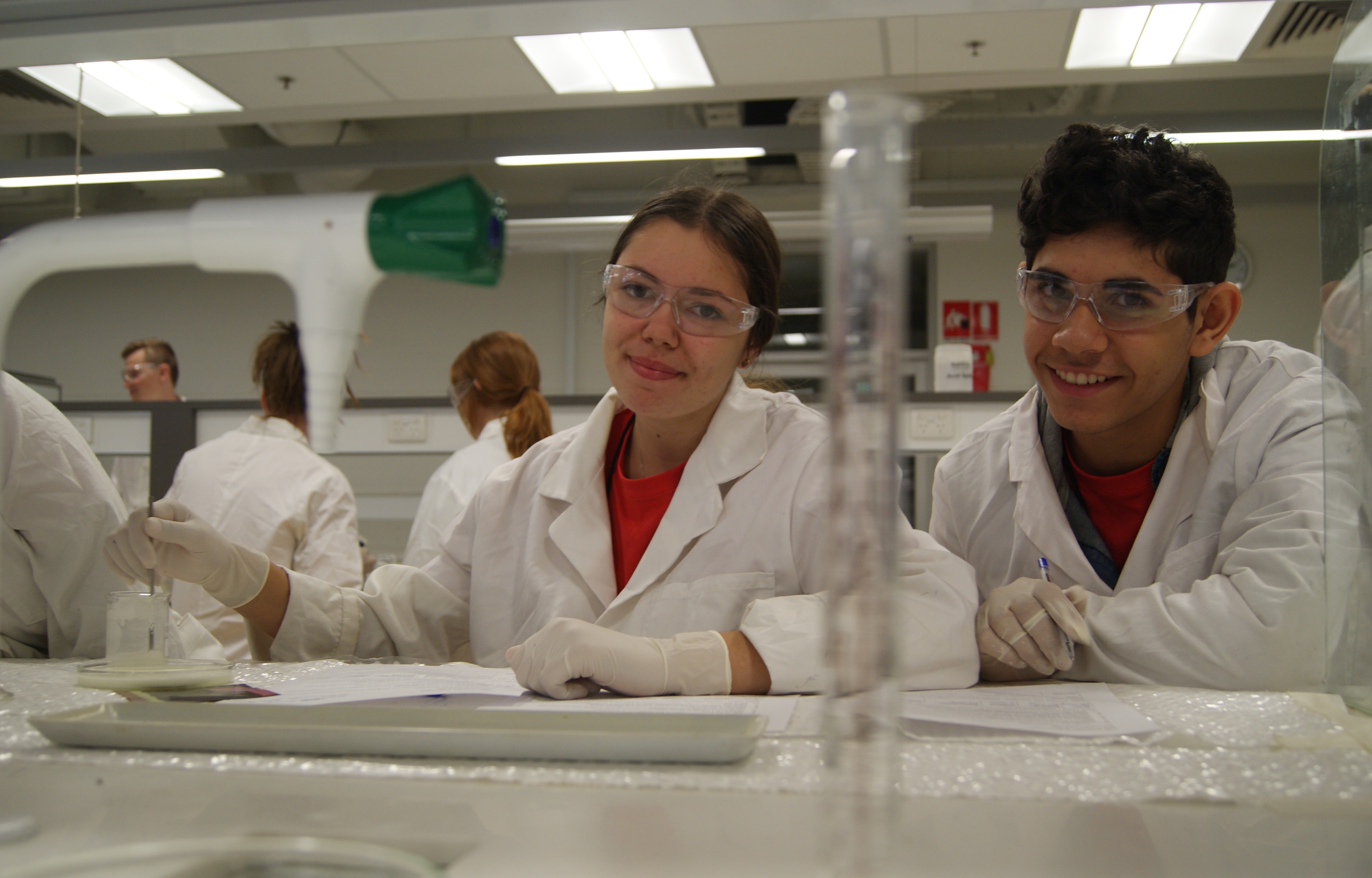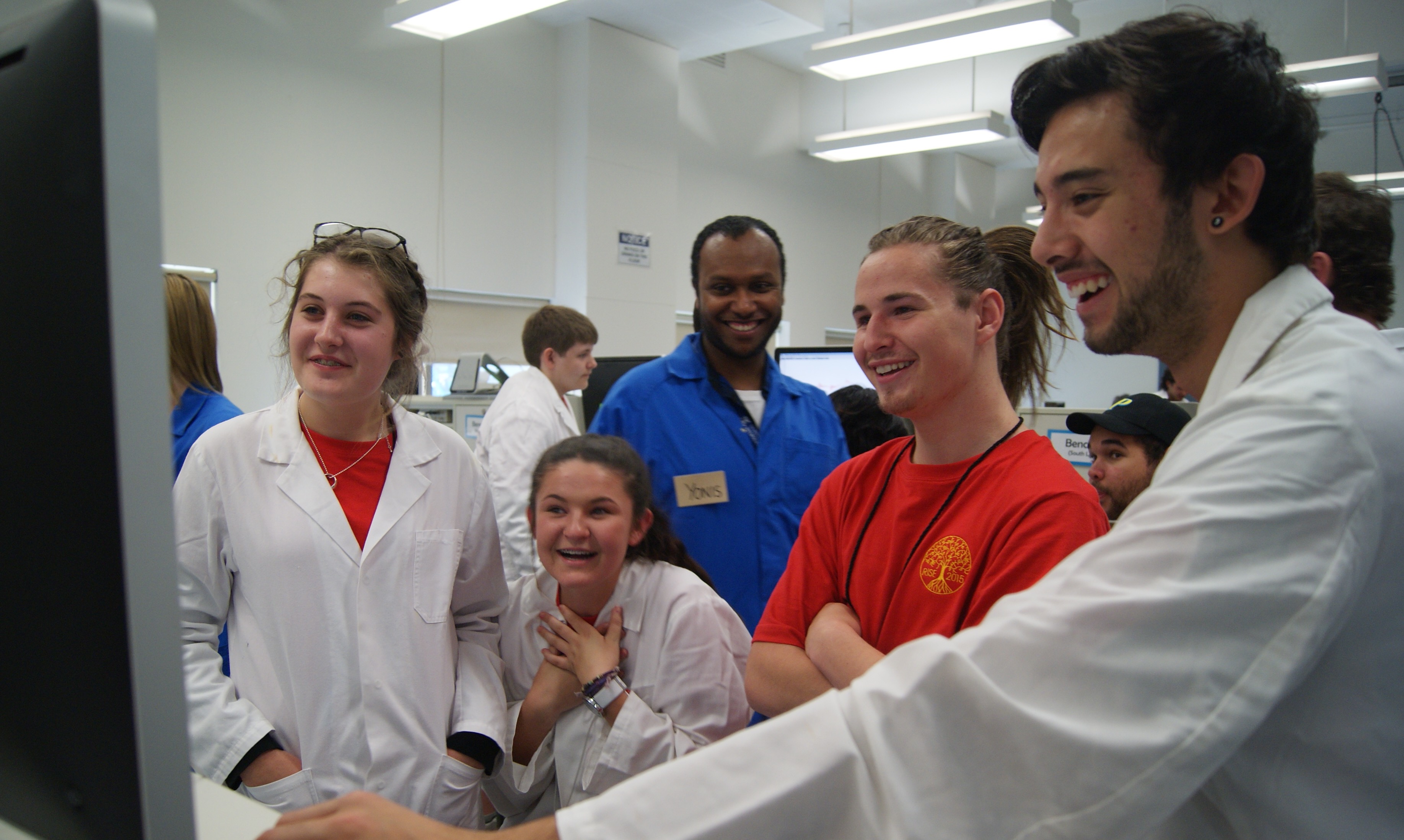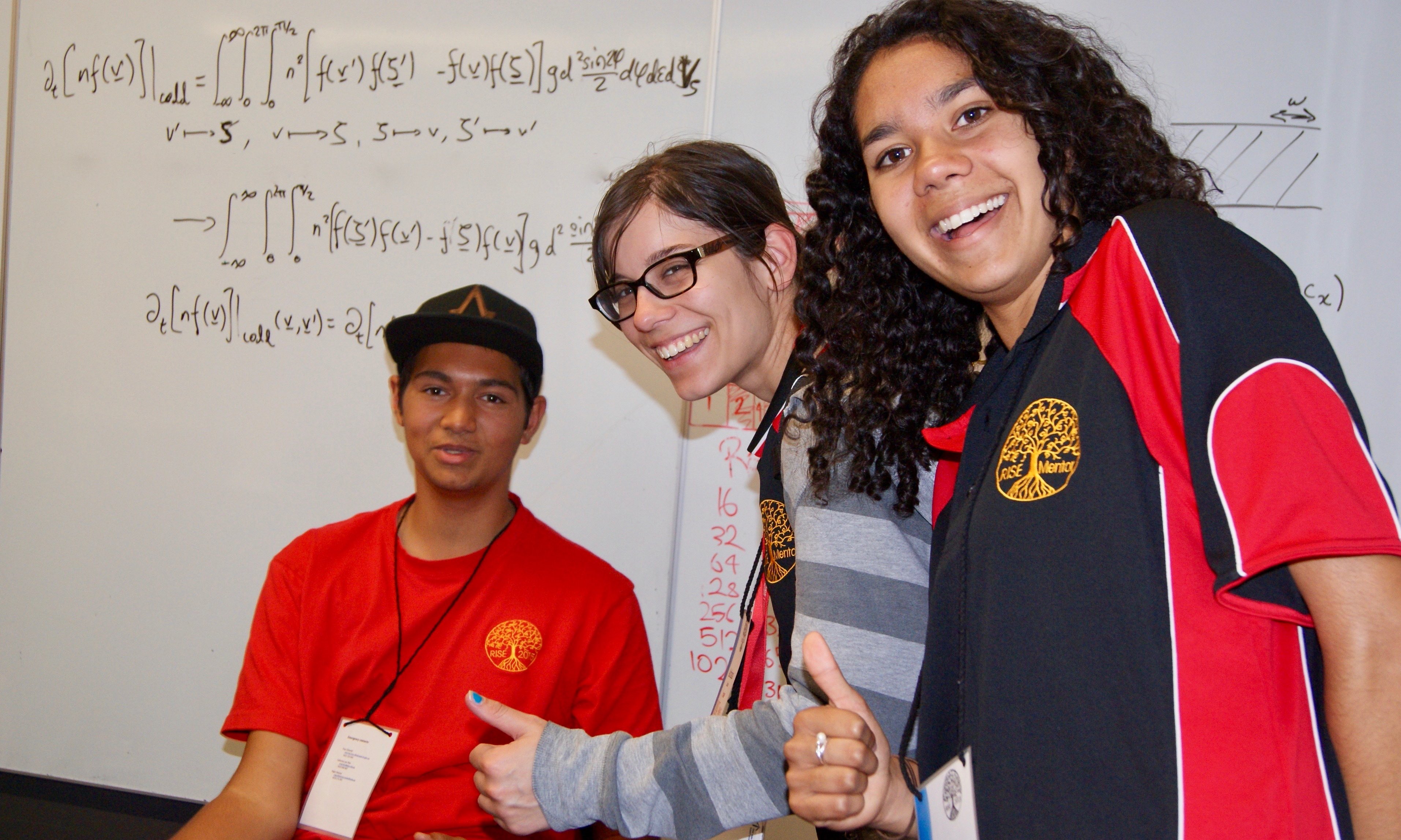
Expanding young, indigenous, scientific minds

Volunteer and mentor Adriana Zanca explains how her work can help budding young indigenous scientists understand the careers available to them
Published 29 November 2017
I’ve always enjoyed science. A lot of people say they find science subjects too intimidating, but for me the sciences and the arts are flip sides of the same coin. The sciences just present things in a systematic way that I can really relate to.
I always had a drive to study a science discipline, because I am passionate about mathematics. But when I left school, I didn’t know where I wanted to study.

What really appealed about the University of Melbourne was that I could continue doing Japanese, which I had studied at high school. Coming to Melbourne meant I could do Japanese as a breadth subject, but not have to undertake a double degree. And that fits in perfectly with my varied academic interests.
My initial volunteering experience came through the University of Melbourne’s Faculty of Science, where I am currently studying. I saw a request on the University website asking for volunteers for the Science Experience program, which the Faculty runs for Year 9 and 10 students in their summer holidays. From there, I was asked to be involved in a more personal experience at a residential camp which allows me to get to know the students a bit better.
I hadn’t met many Indigenous Australians before I became involved in the Residential Indigenous Science Experience (RISE). My lack of experience was actually a major motivating factor in being involved in the RISE program. I feel, as an Australian, that I have a duty to understand Indigenous culture better and be more engaged with our Indigenous population.

When you meet the students for the first time, what stands out most is their enthusiasm. These are students who love science. They want to be involved, they want to learn and they will take things from the camp that will benefit them for years to come.
I have met previous RISE students several years later and even if they don’t end up studying science directly, they say they learnt so much from the camp and are able to use the knowledge they acquired. The camp promotes problem-solving techniques, which can be used to approach issues in many careers.
Most of the kids are 15 and 16-years-old, learning about how to juggle high school with home life. They need to make decisions about what they want to study, so the advice I have is that the best thing you can do is what you love. The camp is really good at providing students with access to like-minded people, because students can be around their friends, learn new skills and make friends along the way.
I guess my biggest piece of advice is that if you think university education is something interesting, then try and stick with it and do your best – go with your passion.
The RISE camp takes place every year at the end of November. It can be difficult for students, because they have to come to Melbourne, stay in the University’s residential colleges and sometimes deal with unexpected challenges. Last year was a great example of that – their stay coincided with a thunderstorm that affected lots of people with respiratory problems.

Some students spent the first evening feeling unwell, so there was the added issue of managing their health. But I guess a positive spin off was that the students formed closer relationships with each other and with the camp organisers.
Being a volunteer does get exhausting. The days are long and the kids are in your care. The days start with breakfast at around 7.30am and the kids’ first scheduled event is usually at 8.30am. It is then full on until probably 8.30 or 9.00 at night. The camp involves a mix of University campus activities and some excursions.
But there are opportunities for downtime, which means sitting down with the students and getting to know them and their passions, rather than just organising activities.

Environment
Rivers as persons
Academic staff run the on-campus activities, which are largely workshops and lectures based around various science, technology, engineering and maths disciplines. Many involve hands-on exercises, which are always a hit. Students get to see a side of science that is both practical and revealing, but it’s also a lot of fun. The really popular moments include a genetic workshop where students get to extract their own DNA and a chemistry experiment that demonstrates the amount of fat in chocolate.
There are opportunities to speak with non-University staff too. The Australian Synchrotron visit is really popular with the physics lovers. The Synchrotron is a particle accelerator, which looks like a very large room, but with various monitoring stations. The demonstrations there can be as varied as medical imaging techniques or an opportunity to see how paintings are accurately dated. There is usually a painting lying around somewhere, with some layer revealed for dating.
The camp is also an opportunity for some students to see a city they have never seen before. We take them to the Melbourne Cricket Ground for instance, which is always well received because so many students are interested in sport.
In fact, sport is a really good bonding exercise – a lot of the boys and girls love their Australian football and basketball. Last year, we had a few basketball and soccer games, where the mentors competed against the students. It is just another opportunity to sit down with kids and learn what makes them tick.
But it’s science they’re here for and science they get. I look forward to meeting some of the students later in their careers when they’re changing the world.
– As told to Chris Weaver
New funding to support Indigenous science students was recently gifted to the University of Melbourne from Agilent Technologies Foundation. The gift will boost the University’s existing initiatives, including the Residential Indigenous Student Experience (RISE) and the Bachelor of Science (Extended) program – a four-year degree available solely to Indigenous students.
Banner image: Supplied
